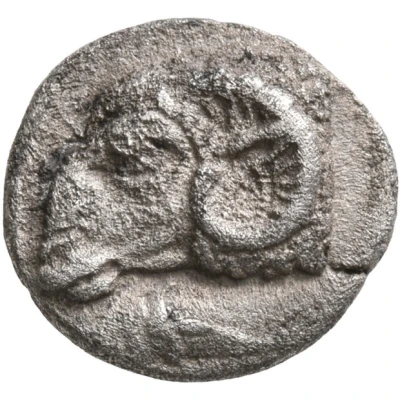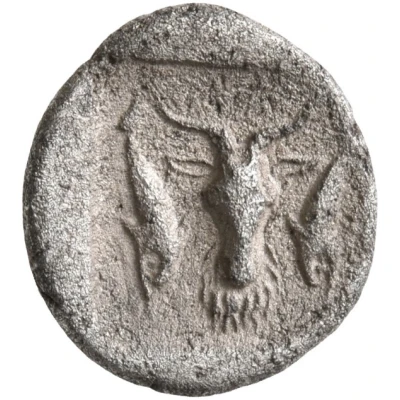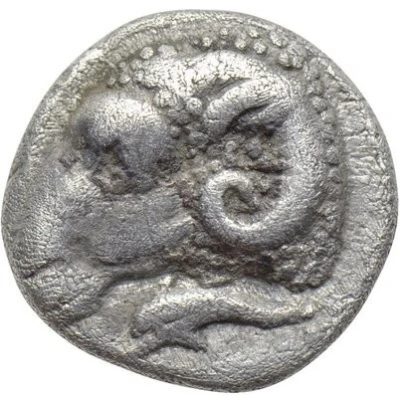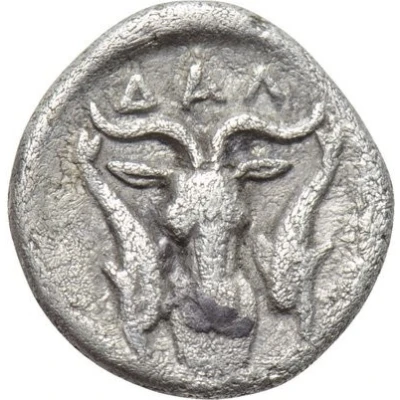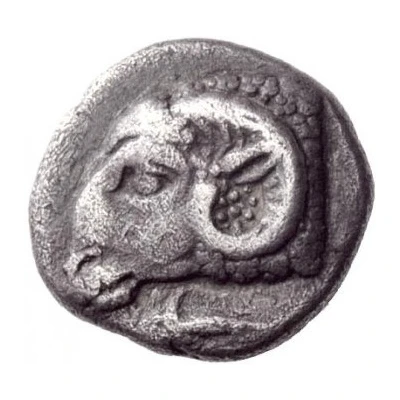
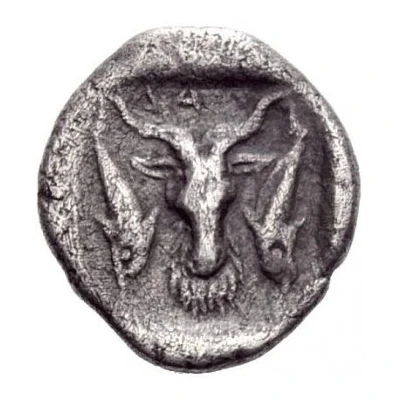

© Numismatica Ars Classica NAC AG
Trihemiobol 425 BC
425 BC year| Silver | 1.2 g | 11 mm |
| Issuer | Delphi (Phokis) |
|---|---|
| Type | Standard circulation coin |
| Year | 425 BC |
| Value | Trihemiobol (¼) |
| Currency | Drachm |
| Composition | Silver |
| Weight | 1.2 g |
| Diameter | 11 mm |
| Shape | Round (irregular) |
| Technique | Hammered, Incuse |
| Demonetized | Yes |
| Updated | 2024-10-10 |
| Numista | N#284843 |
|---|---|
| Rarity index | 100% |
Reverse
Facing head of goat, flanked by dolphins, facing downwards, all within incuse square.
Script: Greek
Lettering: ΔΑΛ
Interesting fact
The Trihemiobol coin from Delphi (Phokis) was used as a form of currency in ancient Greece during the 5th century BC. Its name "Trihemiobol" comes from the Greek words "tri", meaning three, and "hemiobol", meaning a half-obol, which refers to the coin's value being equivalent to three half-obols. Despite its small value, the Trihemiobol was widely used in trade and commerce throughout ancient Greece, and many examples have been found in archaeological excavations.
